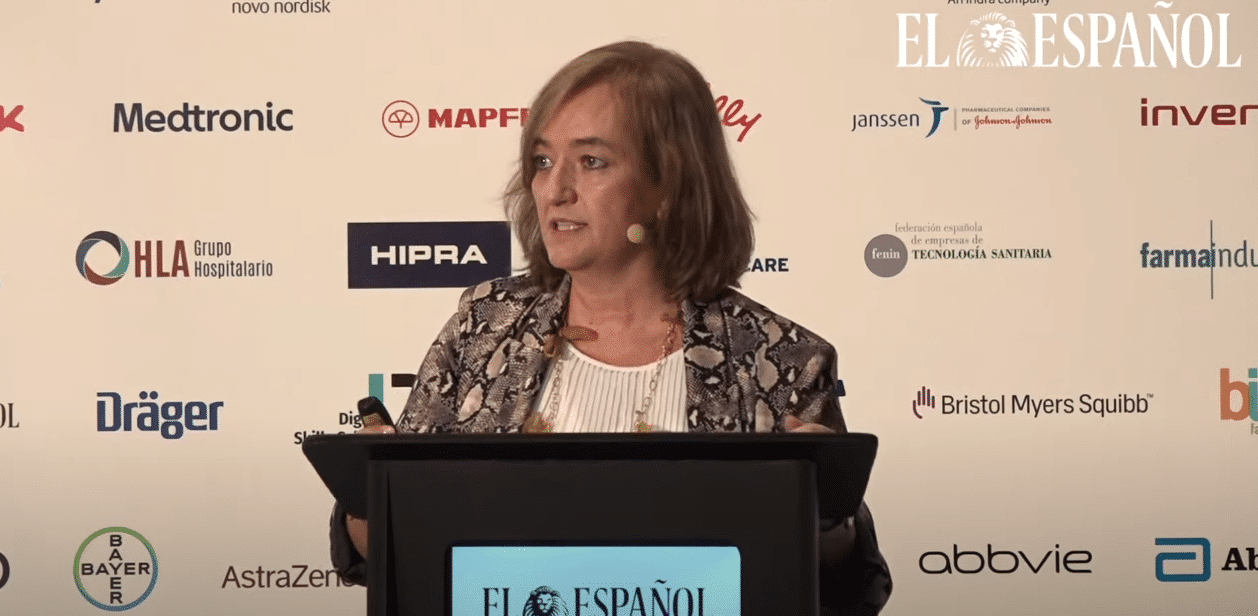
- AIReF’s evaluation of the efficiency of public spending has just been strengthened through the creation of the Public Spending Evaluation Division
- “The weight of healthcare spending as a proportion of GDP and public expenditure, its importance as a public service and the challenges ahead mean that evaluating its efficiency is particularly important”, Christina Herrero, President of AIReF
- Healthcare spending accounts for around 6% of Gross Domestic Product (GDP) and 15% of public expenditure and is on an upward curve
- AIReF has performed numerous evaluations in the field of healthcare on behalf of the Central Government and regional governments.
The Independent Authority for Fiscal Responsibility (AIReF) stresses the importance of evaluating the efficiency of public spending and highlights healthcare as one of the core focuses of its evaluations. This was stated today by the President of AIReF, Cristina Herrero, during her presentation at the Healthcare Monitor: the lessons of COVID-19, organized by El Español.
In this regard, the President of AIReF highlighted the recent creation of the new Public Spending Evaluation Division, part of the Institution’s 2020-2026 Strategic Plan, which represents a consolidation of AIReF’s evaluation function. This division was created in compliance with Component 29 of the Recovery, Transformation and Resilience Plan (RTRP), which recognises the usefulness of AIReF’s evaluations and undertakes to give continuity and permanence to the spending review exercises by creating a permanent Spending Review division at AIReF.
Cristina Herrero stressed the existence of certain characteristics at the Institution that favour its evaluation role. These include the fact that it has access to all levels of the General Government (GG) and performs evidence-based analysis thanks to access to data, as well as independent analyses with multidisciplinary teams made up of technical experts.
To date, AIReF has performed several evaluations commissioned by the Central Government and the Autonomous Regions (ARs). For the Central Government, the Institution has carried out two phases of the Spending Review and a Study of Minimum Income Schemes in Spain. In addition, it is also performing a third phase of the Spending Review and an annual opinion on the Minimum Living Income on behalf of the Central Government.
Regarding the commissions from the Autonomous Regions, AIReF has carried out four evaluations and is currently performing studies with five other regions.
The importance of evaluating healthcare spending
Healthcare spending accounts for around 6% of Gross Domestic Product (GDP) and 15% of public expenditure and is on an upward curve. In addition, it is one of the public services with the highest public rating but 70% of the population consider that the resources allocated are low. In addition, the National Health System (NHS) faces significant challenges, most of them similar to those of other countries, which will have a significant impact on public spending and on citizens themselves.
AIReF has already carried out several evaluations of healthcare spending within the framework of the Spending Review: a Study on Medicines dispensed through prescription and a Study on Hospital Spending of the National Health System: Drugs and investment in capital goods.
For all these reasons, confirmed Cristina Herrero, healthcare remains a key focus of AIReF’s evaluation activity. The institution has implemented numerous evaluations commissioned by several Autonomous Regions: Pharmaceutical expenditure: through prescription, hospital and community healthcare; Investment and operating expenditure for high-tech equipment; Staff expenditure and policy; Purchasing and public procurement model; Economic and financial management information system; and Governance and organisational models.
“Several of the proposals made by AIReF thus far are already being put into practice and the institution has been involved in their implementation by providing technical assistance”. In addition, AIReF is developing a proposal monitor to facilitate the monitoring and implementation of the findings of its evaluations.






